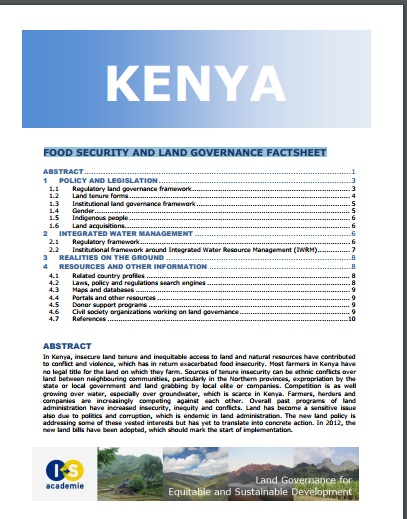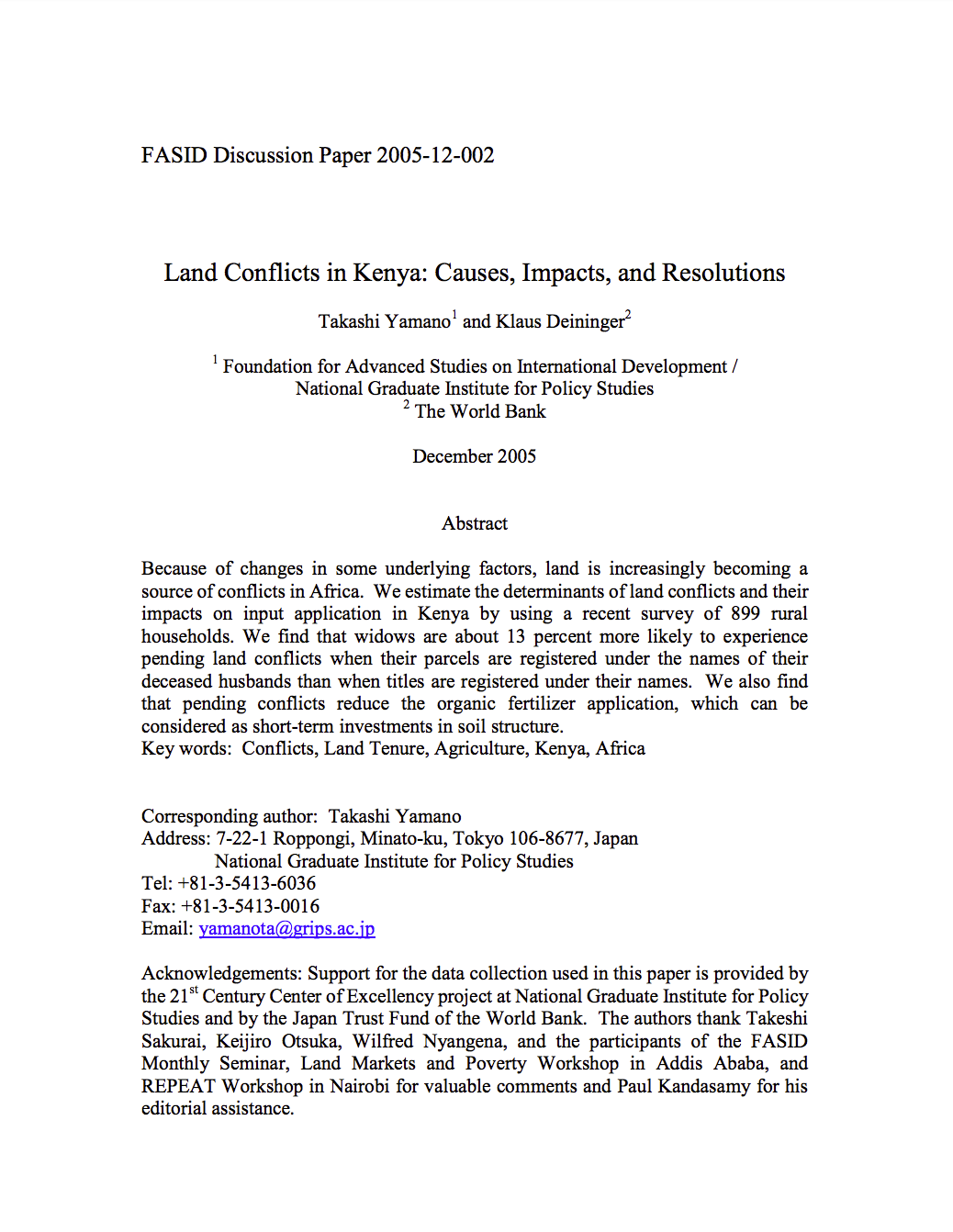Safeguards for communities during acquisition of land for investment purposes
Kenya is going through a period of intense transition. The country's main development policy, Vision 2030, is just entering the second Medium Term Plan of Implementation from 2013. The development priorities focus extensively on large scale investments, for industrial, irrigated agriculture, utilization of newly discovered natural resources, and infrastructure development. Land is therefore a central commodity for realization of the sought after socioeconomic transformation.







